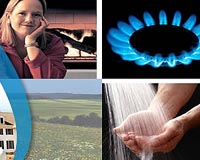 |
Kuwait City (AFP) Dec 14, 2009 Gulf leaders arrived in Kuwait on Monday for a two-day annual summit with the global recession's impact on their economies, fighting in Yemen and Iran's nuclear drive high on the agenda. Leaders of the six-nation Gulf Cooperation Council (GCC) will explore ways to boost and integrate their economies, which have also suffered from the knock-on effect of Dubai's debt crisis. Kuwait's Finance Minister Mustafa al-Shamali on Sunday urged his GCC counterparts to work together in order to contain the ongoing fallout from the financial crisis, although he made no explicit reference to Dubai. "Global economic indicators in the second half of the current year require us to work together to avert any additional consequences of the crisis," Shamali told a meeting of the region's finance ministers. The economies of GCC nations, which boast 45 percent of the world's proven oil reserves and a quarter of global gas resources, have been hit hard by the sharp drop in oil revenues after years of major cash flow. The Dubai debt crisis was expected to be discussed before Abu Dhabi, the capital of the United Arab Emirates (UAE), stepped in on Monday with 10 billion dollars of much-needed cash for the government of Dubai. The glitzy Gulf tourism hub sent jitters throughout global markets in late November when it signalled difficulties in repaying the debt of its largest conglomerate Dubai World, which has liabilities of 59 billion dollars. The GCC groups Bahrain, Kuwait, Oman, Qatar, Saudi Arabia and UAE. A number of key economic integration projects will be launched at the summit. The leaders are expected to officially launch a monetary union pact, approve a multi-billion-dollar railway network and commission the start of a common power grid project. Kuwait's foreign ministry undersecretary Khaled al-Jarallah, quoted by the KUNA news agency, said on Monday that GCC foreign ministers had agreed on a time-frame for the Gulf single currency without providing details. The monetary pact stipulates the setting up of a monetary council next year in Riyadh. The council will develop into a central bank which will take necessary measures to issue the single currency. Only four of the six GCC members have signed and ratified the monetary pact. Oman pulled out for being unable to meet the monetary union conditions while UAE withdrew after Riyadh was selected as the base for the central bank. Following the opening ceremony in the evening, the GCC leaders will commission the first phase of a 1.6-billion-dollar Gulf power grid project. The head of the power grid authority, Yussef Janahi, told a press conference that the project would reduce the need for new generation capacity in GCC countries next year by 5,000 megawatts. It will be completed in 2012, he said. He added that Kuwait, Saudi Arabia, Qatar and Bahrain have all been linked to the system. Yemen's fight against Shiite rebels and Saudi Arabia's involvement in the conflict, plus the Iran nuclear issue and the impact of both on regional security, will also feature prominently in the summit talks. Kuwaiti Foreign Minister Sheikh Mohammad al-Sabah told a foreign ministers meeting that GCC states were surrounded by "grave security developments and serious economic implications." His Yemeni counterpart Abu Bakr al-Kurbi secured assurances of "economic and security" support from the GCC states during a visit to Kuwait City where he delivered a letter from President Ali Abdullah Saleh to the Kuwaiti ruler. Share This Article With Planet Earth
Related Links Powering The World in the 21st Century at Energy-Daily.com
 Top gas producers tackle global glut
Top gas producers tackle global glutDoha, Qatar (UPI) Dec 11, 2009 The world's top natural gas producers meeting in the Gulf state of Qatar have agreed to strengthen their emergent organization and work together to push up tumbling prices caused by an unprecedented global gas glut. But there's still no sign that they will coalesce into a price-manipulating cartel with the market muscle of the 13-member Organization of Petroleum Exporting Countries that ... read more |
|
| The content herein, unless otherwise known to be public domain, are Copyright 1995-2009 - SpaceDaily. AFP and UPI Wire Stories are copyright Agence France-Presse and United Press International. ESA Portal Reports are copyright European Space Agency. All NASA sourced material is public domain. Additional copyrights may apply in whole or part to other bona fide parties. Advertising does not imply endorsement,agreement or approval of any opinions, statements or information provided by SpaceDaily on any Web page published or hosted by SpaceDaily. Privacy Statement |